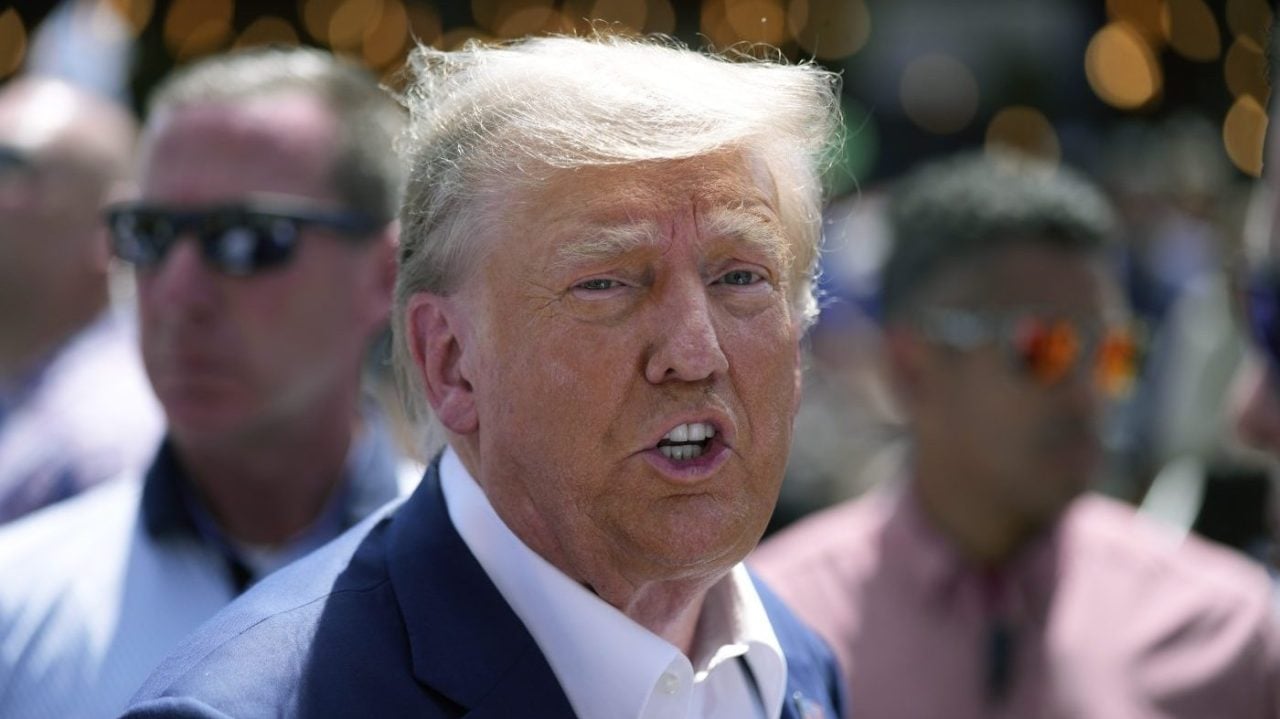In a pair of Truth Social posts Monday evening, Trump took aim at the electric vehicle industry and President Biden’s push for more electric vehicles. With this opposition to electric vehicles, Trump is likely trying to persuade Michigan voters to support him over Biden, who carried the swing state in 2020.
The Biden administration has pushed to boost electric car sales, with the Environmental Protection Agency (EPA) predicting that two-thirds of new car sales could be electric by 2032 under a new proposal released by the administration earlier this year. Last week, the Energy Department announced plans to invest $12 billion into converting auto manufacturing facilities into plants for hybrid and electric vehicles.
Trump also took aim at Shawn Fain, the president of the United Auto Workers, for supporting the Biden administration’s latest investment into electric vehicles.



What about those of us who think that EVs only prolong the issue, and that better public transportation for everyone isn’t just a good idea, but the best idea for personal well-being, as well as climate change?
Sure, but while I wait for that to actually exist where I live, are you OK with me driving an EV or should I just not leave the house?
I think they should realize that those public transportation have to be powered somehow and that we have to keep developing the technology for EV one way or another because fossil fuel busses and trains are not the future.
I mean, they’re already starting to move away from natural resources for busses. Granted, per person per mile, they’re already drastically more efficient than than any gass guzzler on the road.
Not too mention that subways and light rail are already electric, and we’re moving away from fossil fuel power generation, too.
If we built futures that didn’t need cars, with more walkable locations, mixed zoning, safe bike lanes, etc. our current car-centric society could finally disappear.
You should be in favour of EVs. Just large, bus-shaped ones. However private transportation isn’t simply going to vanish. So it’s best to support a transition to EV cars as well
I’d tell them to be realistic, and remind them that a large percent of the population doesn’t live in dense areas where that type of thing is practical, and that personal vehicles, of some sort, will be required until those larger issues can be fixed.
The vast majority of people live in dense populations…
Better public transportation is an ongoing process involving restructuring towns and cities at all levels. Even if we were prioritized it like we should, we’d still need personal transportation for many decades.
Realistically, even if we did rebuild all cities, towns, and villages to make public transportation more practical, there will always be someone who needs personal transportation. There will always be a need for trucks and tractors. By all means, let’s do what we can to reduce the need for personal cars, but we can’t afford to wait and we’d need EVs even if we achiebpved it